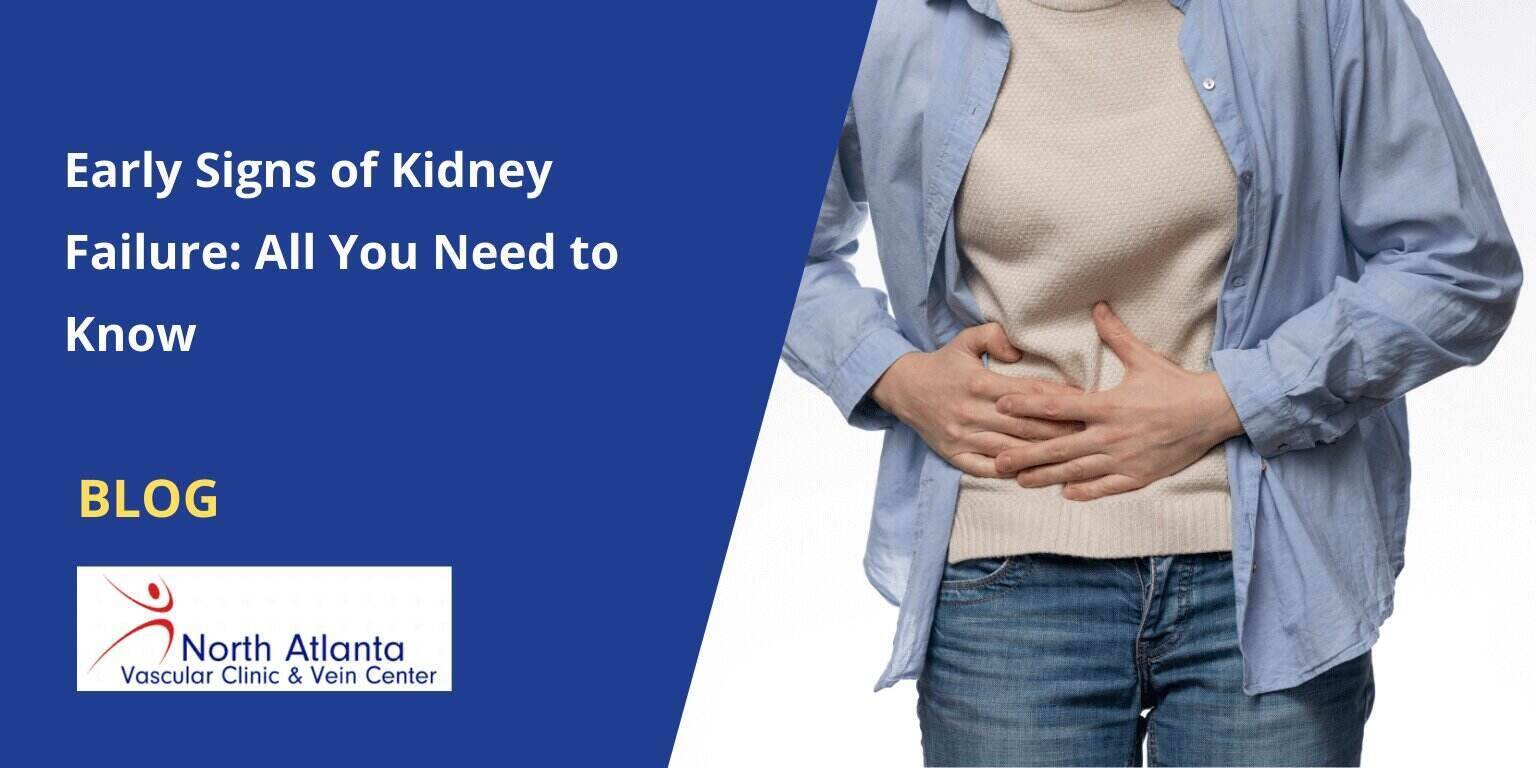



Kidneys are among the most important organs in the human body. They filter waste and excess fluids from the blood, regulate blood pressure, and maintain electrolyte balance. Certain conditions and diseases may inhibit proper kidney functioning, leading to serious health concerns. According to research, chronic kidney disease affects 1 in 7 adults in the United States. However, recognizing the early signs of kidney failure will help us remain proactive and prevent potential damage to this organ.
Let us discuss all aspects of kidney disease to encourage timely medical intervention and better outcomes.
Kidney failure happens when one or both of the kidneys lose their ability to function properly, accumulating harmful wastes and fluids in the body. There are two primary kinds of kidney failure:
Depending on the specific condition and potential cause, there are a few stages before kidney failure.
Kidney disease progresses through five stages, each indicating a further decline in kidney function. Early stages may show no symptoms, making regular checkups crucial for at-risk individuals. Later stages exhibit more severe symptoms and complications, with stage 5 being end-stage renal disease. Each stage depends upon your estimated glomerular filtration rate (eGFR), which defines how well your kidneys work. Let us see this in the following table:
| Stage Number | eGFR (mL/min/1.73 m²) | Affects |
| Stage 1 | >=90 | Slight kidney damage with normal or increased filtration. |
| Stage 2 | 60-89 | Mild reduction in kidney function with noticeable changes in filtration rates. |
| Stage 3 | 30-59 | A moderate reduction in kidney function, with more noticeable symptoms. |
| Stage 4 | 15-29 | Severe reduction in kidney function, requiring preparation for possible dialysis or transplant. |
| Stage 5 | < 15 | End-stage renal disease (ESRD), where kidney function is critically low and dialysis or transplant is necessary. |
There are some common signs which may indicate early symptoms of kidney failure. These symptoms may differ depending on the stage of kidney disease. Whether acute or chronic, recognizing these symptoms is essential. Early signs can be:
Besides these signs, a later-stage kidney problem can manifest as major symptoms that include the following:
Kidney failure is not an immediate effect of kidney disease. Various factors can lead to kidney failure, from chronic diseases to acute conditions and external influences. The common ones can be:
In rare cases, the following causes can lead to likely damage and kidney failure:
Kidney disease diagnosis involves a comprehensive evaluation of symptoms, medical history, and specialized tests. These tests help in getting immediate attention for specific conditions. They may include:
Early detection is key to finding an appropriate kidney disease treatment and improving the impact on individuals at risk of severe kidney disease.
Treatment options for kidney failure include medications to manage symptoms and underlying conditions, lifestyle changes such as dietary adjustments and exercise, and dialysis in more severe cases:
Early detection of kidney problems is essential. Regular checkups, especially for those with risk factors like diabetes or high blood pressure, can help detect early signs of kidney failure. Consult a doctor if you experience any of the symptoms mentioned above.
Kidney health is essential for overall well-being, and early detection of kidney problems can assist in the timely diagnosis and proper treatment of any underlying concern. By understanding the early signs of kidney failure and seeking prompt medical attention, individuals can manage their condition and maintain a good quality of life.
At North Atlanta Vascular Clinic, our experts accurately diagnose and treat various vascular conditions, including end-stage kidney disease. Our experienced professionals offer comprehensive plans and specialized care to help you fight infections or diseases that may harm your kidneys. Book an appointment today, and let us guide you to a healthier lifestyle.